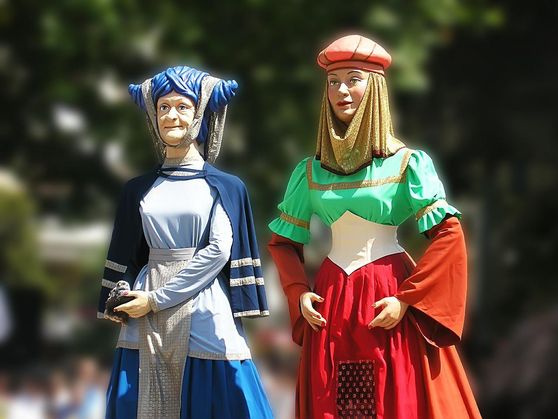Career in costume designing: jobs, skills, courses and other details


Who is a costume designer?
A costume designer is the person responsible for designing the elements of clothing worn by actors in films or on stage. A costume designer has skills similar to those of a traditional fashion designer, but with certain exceptions. More on that later.
So, in a nutshell, costume designers are in charge of creating the look and mood of actors and artists through the wardrobes and props used.
What is the difference between a fashion designer and a costume designer?
Fashion designers and costume designers share many common skills. However, costume designers have their own understanding of how to design costumes for film, television, or theatrical productions. They understand that the costumes they design must be impactful while also being durable enough to withstand the wear and tear of rehearsals and production. For costume designers working in theatre productions, they also have to plan for rapid scene changes, where people will be changing costumes in a rush.
Theatrical costumes should also meet the specific needs of the story, for instance a costume designer may be asked to design a period crinoline piece, or a delicate and refined dress but one that must withstand months of everyday wear. Often, costumes also play a significant role in the storytelling process - conveying things that may not be explicitly stated. The costume designer must be able to understand the need for these elements and work accordingly.
Finally, costume designers are also tasked to work with other design professionals in a production, such as lighting and set design, to develop a compatible aesthetic for the entire show.
So now that we know the differences, let’s try and define exactly what a costume designer does…
What does a costume designer do?
Costume designers research, design, and stitch the costumes and other accessories worn by actors. They ensure that the props and wardrobe align with the story being told and that represent each character's personality, culture, and relationships. They are also responsible fordesigning entire wardrobes for their characters with multiple looks, that all conform with the overall aesthetic of the character while conveying shades of difference from scene to scene.
All costume design assignments begin with a careful reading of the script by the designer. It is important for the costume designer to have a good understanding of the overall plot, the director's vision and intent, as well as the role various characters have to play throughout the production.
Once the costume designer has a good sense of the creative direction to be taken, they study the clothes, designs and materials that belong to the period, place and time being depicted. The costume designer then creates a costume plan keeping all of this and the personalities of the actors in mind. This plan may consist of sketches, briefs, or even computerised images.
Once approved by the director, the costume designer will then begin searching for the required costume and props. Certain costumes may also need to be sewn by a tailor in close consultation with a costume designer, or by the costume designer himself. Even with the props being used, some may be sourced, and others need to be made and customised.
What does the day-to-day of a costume designer look like?
The day to day duties of a costume designer will include some or all of these:
What courses to study to become a costume designer?
Here’s a list of the major degrees and diploma courses which one can pursue to learn the skills and techniques needed to excel in costume designing:
The top 3 colleges in the country offering courses for costume designers are:
Whistling Woods International, Mumbai
Lovely Professional University, Jalandhar
Whistling Woods International, Mumbai
Lovely Professional University, Jalandhar
Regardless of educational background, most professional costume designers initiate their professional journey as assistants either in stage costume design shops or film dressing rooms. Gaining basic experience in these entry-level positions enable designers to assemble a portfolio showcasing the various costumes they have designed.

What are some key skills that help a costume designer make it in the industry?
When looking for experience as a costume designer, it is essential that you present yourself as a worthy candidate - be it for internships, apprenticeships or jobs. Some of the important skills that any production company will look for are:
What are some of the related job opportunities a costume designer can consider?
Being a flourishing field, the job opportunities available for a costume designer are not only restricted to the field of costume designing. Here are some popular profiles available for them to kickstart their professional career:
Costume designers use the language of fashion to describe the setting, mood, and characters of a film or opera, often depicting crucial character details that would otherwise be lost because they are not articulated in the dialogues. However, what seems like merely creating beautiful costumes, is actually a job that requires a specific knowledge of stage production, a deep understanding of fashion history and costumes, and the ability to create excellent visual designs. So are you ready with your sketchbook now?
Interested in fashion designing? click here to know how to start your career in the field